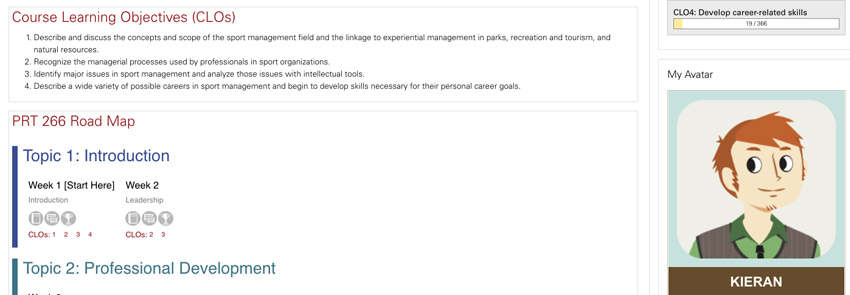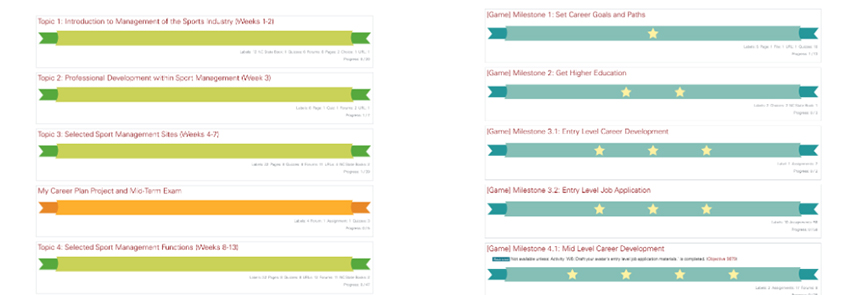The goal of this project was to overcome course delivery and gamification challenges in a sport management course. Takeaways include the need to integrate game-based learning, scaffold critical thinking, and visualize learning progress.
Instructional Challenges
- Content learning tasks and activity schedule were originally delivered through Moodle calendar. Students had difficulty understanding the course structure. Those who don’t check into the calendar can easily lose track.
- Students had difficulty understanding the controlled release feature of the course/game activities. Not seeing the entire game process gave students the initial misconception that there was only minimal work to complete.
- Students played the career exploration game at different paces. Some did it at a steady pace, while some waited until the last month of the semester when they felt the need for grade replacement (incentive for playing the game).
- Students tend to select the less important activities to get game points, instead of selecting activities based on skill gaps. This also took away their time for the more important activities aligned with the course learning objectives.
Solution Highlights
- Reorganized Moodle Structure: The course is organized into two visually distinct but closely connected sections using separate blocks and graphic banners.
- Content Learning Blocks: Content learning blocks are organized by a weekly schedule. Each week has three consistent steps: Concept Learning covers the basic knowledge and self-checks. Active Learning requires applying the concepts to case studies. Career Exploration involves specific game resources and activities. Students gain points for the course learning objectives as they complete the activities.
- Game Blocks: Game blocks are organized by milestones, each containing a set of game activities. All milestones and most activities are visible to students from the beginning, but the access depends on their game progress. The Career Exploration step from the content blocks provide directions and references for how to complete the game activities.
- Game Scaffolding Journal: The career exploration step also directs students to work on a guided journal in Google Docs that provides detailed guidance for making game decisions, such as identifying skill gaps to help decide which career development activity to engage with. Students share their notes from the journal with group members to get feedback.
- Course Roadmap: The course roadmap developed from previous projects was applied to provide visual representation of the course and help students track their progress during conceptual learning, active learning, and the career exploration game.
For more information about DELTA services, please contact LearnTech.

